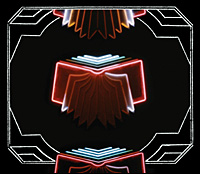
Paul Harvey
I do not pretend to understand the moral universe; the arc is a long one, my eye reaches but little ways; I cannot calculate the curve and complete the figure by the experience of sight; I can divine it by conscience. And from what I see I am sure it bends towards justice. Theodore Parker.
He must have been watching the Grammys last night.
Every time I fall into despair about that "bends towards justice" line, something happens to keep hope alive, and put God back on my mental map again. The last couple of weeks have been such a time -- Egypt, the Packers, Glenn Beck's ratings falling off a cliff -- and ending with an actual victory for musical truth and justice last night at the Grammys: the recognition of Esperanza Spalding for "Best New Artist" (keeping in mind that she's already 26 and has a whole stack of recordings already, she's only "new" since popular music only wakes up and recognizes jazz once every 10-20 years), and Arcade Fire for best record for The Suburbs. Spalding gave a nice lesson in grace (listen and learn, Kanye) in complimenting her competition, notably Justin Bieber, whose angry fans were tweeting in furiously and defacing Spalding's Wikipedia page from their teenage wastelands. Oh well, they'll grow up.
Aside from her own records, I wanted to draw your attention to one new collaboration of Spalding's, with the great veteran saxophonist Joe Lovano: Bird Songs, just out from Blue Note Records, featuring Lovano, Spalding on bass, and an all-star lineup reinterpreting Charlie Parker's tunes. Not surprisingly (to me), Lovano finds a spiritual core to classics such as "Yardbird Suite":
"Yardbird Suite" appears on the album in two distinct versions. First as "Birdyard," a piece that Lovano put together to feature the aulochrome. "I took a phrase from 'Yardbird Suite' and turned it into a kind of whirling dervish of sorts through five different keys and improvised on the aulochrome over that. It would have been incredible to hear Charlie Parker play that instrument and develop ideas within the possibilities of this horn."
The version of "Yardbird Suite" that closes the album is the perfect summation of the spirit of adventure with which Lovano approached this project. "It came to me one day, I heard that melody as a hymn, as a spiritual, and I started to play it just by myself unaccompanied saxophone. And then I heard all these parts, added an interlude, and went into a 6/8 kind of a dance, and it turned out to be a really different exploration on that piece of music."
As for Arcade Fire, has there been a major pop group more concerned with exploring religious themes through their music? Most obviously, at times perhaps laying it on a little too thickly, this came in their last CD Neon Bible, but The Suburbs is full, too, of anxious contemplation of uncovering meaning in dispiriting environments. A thoughtful review, which compares the CD to Springsteen's The River (and also likes it more than the heavier-handed Neon Bible, a conclusion with which I beg to differ as I believe the former is a bit more ambitious and interesting musically), is here. An older interview with Arcade Fire's leader Win Butler, including a discussion of some of his formative religious influences, is here.
concerned with exploring religious themes through their music? Most obviously, at times perhaps laying it on a little too thickly, this came in their last CD Neon Bible, but The Suburbs is full, too, of anxious contemplation of uncovering meaning in dispiriting environments. A thoughtful review, which compares the CD to Springsteen's The River (and also likes it more than the heavier-handed Neon Bible, a conclusion with which I beg to differ as I believe the former is a bit more ambitious and interesting musically), is here. An older interview with Arcade Fire's leader Win Butler, including a discussion of some of his formative religious influences, is here.Esperanza shows us hope, even in the suburbs.
Tidak ada komentar:
Posting Komentar